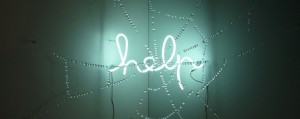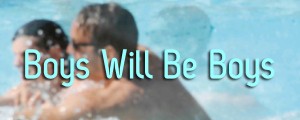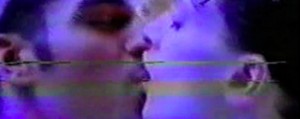James Ferraro is very much a product of his time, or not so much a product of it but its logical outcome. The fragmented, rapidly changing motion of the digital era and the possibilities it offers appear to suit him perfectly. It’s unclear who or what is being influenced by whom (or what) but that is also part of the point. The blurring of borders, disappearance of distinctions, is something credited to that ‘great democratiser’ of the Internet. Ferraro’s musical, creative, cross-platform output is reflective of that. The only thing is, there’s a lot that’s troubling about modern culture and he gets that too. In fact, he gets a lot of things.
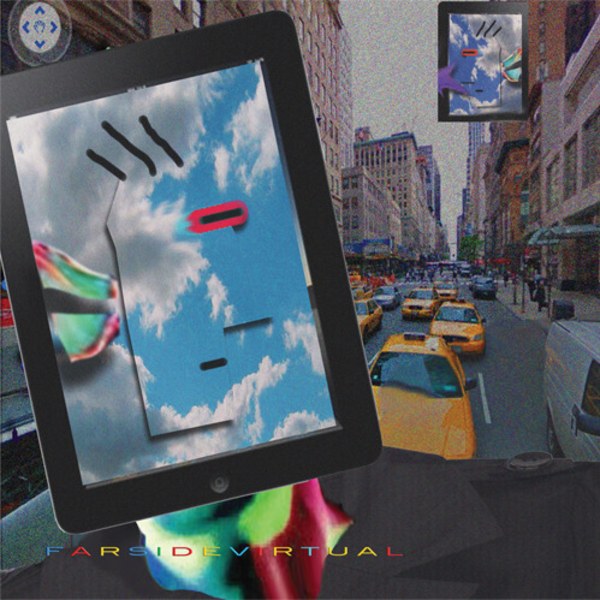
Full of ideas and a wealth of information, it’s no surprise that Ferraro has been releasing music as prolifically as he has. He’s worked under a surplus of project names (including noise duo The Skaters with Spencer Clark) since his teens, most recently becoming the cream of the niche-industry crop with 2011’s Far Side Virtual, released on Hippos in Tanks. That album is a fabulous and unsettling microcosm of our synthetic universe, comprising automated voice responses, mobile ring tones and utopian ambience –as seen on your online store app.
To meet the wildly ‘switched on’ (to use an appropriate tech-metaphor) artist is to be shocked that James Ferraro comes in flesh and bone –wearing a Suicidal Tendencies t-shirt, no less. His scholarly analysis of modern life and popular culture is punctured by endless speech disfluencies and linguistic fillers (“like, you know”). He’s had no sleep since leaving LA for London following a four-hour delay but he assures “it feels good”. He’ll go on to sound-check, perform and go out late in London, before heading off to Berlin’s Club Transmediale Festival at 7am the following day.
But, for now, the irrepressibly chatty and friendly artist is more than forthcoming about everything put to him. There are the strangely logical comparisons between the work of video artist Ryan Trecartin, comedians Tim & Eric and global soul-pop phenomenon Adele. He has almost equal esteem for power electronics pioneers Whitehouse as hip hop producer Kanye West, while his new collaborative project, Bodyguard, will be a way to channel his more visceral creative inclinations with an LP release set for the coming summer. All this, without ever losing perspective as he responds to the suggestion of his still very underground celebrity: “yeah, on the Internet, you know.”

**You’ve done all this work and from what I gather you’ve got an endless store of ideas. Do you feel like the Internet helps with the way you work?
JF: The Internet definitely facilitates a rapid output. The way I look at it, I would otherwise be doing things in a similar way but at this point there’s no way of telling. I’ve been pretty much making and recording albums since I was a little kid and I feel like the Internet is pushing forth production.
**You seem pretty switched on, obviously, when it comes to what you’re doing. Where do you think you can go from here? Are you just going to evolve with technology?
James Ferraro: That’s probably a part of it but I’m actually focusing on my band right now. I started a band called Bodyguard and I’ve been really focusing that as my main musical outlet. But for myself as a solo artist, I’m going to focus on more involved musical projects. I really want to write an opera and I also want to focus on visual art, sculpture and large-scale installations. That’s pretty much where I’m heading right now.
As far as technology is concerned I haven’t even explored everything that’s available now, besides really cheap consumer software programs, like Fruity Loops, Ableton, Logic and then different synthesisers and samplers. I definitely want to get more involved in that but I think, musically, I want to be relating that to the band, which is me doing most of the writing but also having some members to collaborate with. I don’t want to have complete creative control over music anymore.
**With Far Side Virtual, the way you create music seems so concept-heavy that it feels like it’s more cerebral than visceral.
JF: I think it’s impossible for music writers to wrap their head around it because it’s simultaneously an art object and music piece but it just ended up evolving that way. When you try to analyse Far Side Virtual as just a musical object, you really can’t because it doesn’t actually address the conceptual nature of it.
I do see that difference there, of the less visceral and more conceptual, but it’s really just those works that people have paid attention to; Last American Hero and Multitopia, especially. It’s sort of departed further and further away from music to the point where it’s not even really music anymore. That’s why I felt this split to focus on my band and my music and then on my solo output as a visual artist, or even musical ideas that are a little more evolved than what a music journalist universe can build on.
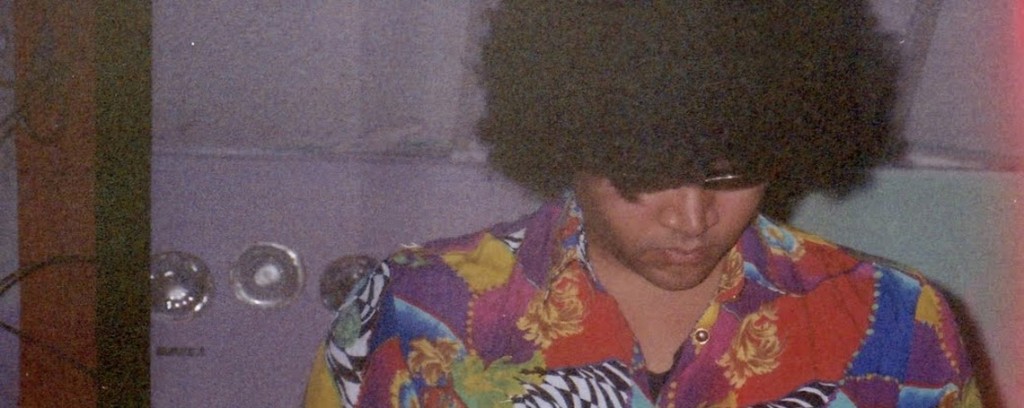
**I felt like you’ve totally capitalised on that though –however unintentionally. Journalists love something, like the noise of The Skaters, where they can apply their own abstract ideas.
JF: That’s what I do with music. When I listen to something, I have a million ideas about it, so I guess I end up producing that myself without really knowing. This sounds crazy but I really relate to bands like Whitehouse in my thinking towards making Far Side Virtual. Obviously the style and method is totally different but I feel like the concept for the record, the only thing I can vibe with, is like Whitehouse records.
For me, the record was trying to cut through a lot of layers of social interactions and culture and find this core and essence of the human spirit right now, which has been altered by the introduction of consumerism and things like that. I just wanted to find the modern western soul. That is my thinking and other artists that have done that are noise, or power electronics artists like Whitehouse. I don’t find it much of a departure from that but I guess it’s open to interpretation.
**What are your thoughts on being compared to US video artist Ryan Trecartin?
JF: We’re basically a part of the same generation, so I can see how these things manifest themselves in both of our work, or any artist’s. I relate to performers, like Adele, who capture things that Ryan Trecartin and artists like him are commenting on. A lot of his stuff is like a really overt expression; at least I find it really overt. I can really interpret the same things in an Adele performance.
I was talking to people about that Lana Del Rey performance [on Saturday Night Live] upstairs and it was weird because it makes so much sense. People were really upset about it but it makes sense though… I think it’s beautiful. It represents the change and the time we live in. I just respect realism. Part of her schtick is frailty and failure; it’s a part of her ultimate message as an artist. Personally, I’d like to see more positive roles but that’s just part of our history, it’s building up and this is what we’re experiencing now.
**It’s like comedians Tim and Eric and how they represent the flaws, imperfections and ultimate farce of free-to-air TV.
JF: Yeah totally, except they are overtly satirical. I love that and a lot of my own work is satirical but I don’t think Ryan Trecartin’s work is satirical, really. I think it has deeper value. But when you see [Lana Del Ray] on stage under these really expensive lights and cameras and her humanness spilling forth, we need to embrace that. Maybe don’t go out and buy her record but we just need to reflect on that and be like, ‘that is a Ryan Trecartin piece’.
**I think where him and you differ is you don’t really express much of an opinion, in terms of being negative or positive. You’re searching for the ‘Western soul’, as you say. I feel as though Ryan Trecartin has already decided that there isn’t one.
JF: That might be my flaw as an artist that is trying to communicate an idea but I like these ambiguous statements. You have to give the listener more freedom to find the meaning behind something.
**You would have seen a time pre-internet, right?
JF: By the time I hit high school, it was just getting integrated into schools. I mean, I remember life without it but very young. Surprisingly a lot of my memories as a kid are really vivid though.
**Maybe that has something to do with memory degradation.
JF: You mean your short-term memory fading? Yeah. Probably. Definitely. It becomes an unused organ that just dissolves and you’re, like, ‘have a USB drive’. **
